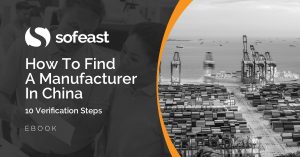After about 40 years of openness, and about 15 years of ‘direct trade’ without Hong Kong trading companies, one might expect that foreign buyers take more precautions when dealing with Chinese suppliers.
And, to be sure, some buyers do pay attention to risks. They have heard a few horror stories. They have read about common misconceptions, typical pitfalls, assumptions to avoid, and best practices for supply chain management.
Unfortunately, it seems that a majority of people who haven’t been exposed to China yet and come to enjoy its manufacturing capabilities tend to extend trust too easily.
It is so common, I am tempted to call this the credulous foreigner syndrome.
What leads foreign purchasers to exhibit this syndrome?
I’d guess it is a mix of several factors:
- Poor understanding of facts — “After all, even the iPhone is made in China”. Yes, but in Taiwanese-owned facilities, and under strict preparation and control by Americans.
- Poor reading of signals — the Chinese side really tries hard to establish a personal connection, and it means they are interested in helping me. Yes… or maybe just in your money?
- No prior exposure to a similar environment — for example, unexperienced North Americans are more likely to take no precautions than Indians (who are used to highly risky transactions).
What are common examples of mistakes made by a credulous buyer?
You are in this situation if you make one of these mistakes.
- You want to know some background information about their company (‘are they really a manufacturer?’), but you don’t want them to know about your research. And, guess what… they will.
- You place a small order (say, 5,000 USD) and you agree to pay it 100% in advance. This will shape the supplier’s incentives in the wrong way. In other words, you have probably shot yourself in the foot.
- You have an idea of a new product, and you share it with potential suppliers without a proper agreement in place. If you use the standard NDA template your company uses in your country, all the people who sign it in China will know they run zero risk. Read about the NNN agreement on the China Law Blog.
- You visit the factory, but you don’t dare to bring in someone who can ask straight questions to the factory staff (about working hours, their most common quality problems, their latest customer complaints, what they have done recently for the environment, and so on). You let the managers and your salesperson present the reality as they like.
- You don’t dare to send your own inspector before they ship the goods. Maybe you want to show some goodwill (a bad idea in general, in China). Maybe your contact promised to check the quality by herself. Maybe you forgot to specify it from the start, and they said no when you mentioned it. In any case, a serious mistake.
- You have issues with a Chinese-owned manufacturer, and then you make a conscious effort to work with a HK-owned, Taiwan-owned, European-owned, or American owned manufacturer, BUT you don’t change your approach… and you end up with the same result.
****
What do you think? Have you also noticed the same phenomenon? What have you done, to fight it? Let me know by leaving a comment.
Are you wondering how to find a manufacturer in China who is well-suited to your needs and can also deliver on their promises?
Sofeast has developed 10 verification steps to help you find the right manufacturer. They’re shared in this FREE eBook: “How To Find A Manufacturer In China: 10 Verification Steps.”
It covers:
- Background checks
- Manufacturing capabilities
- Quality system auditing
- Engineering resources
- Pricing, negotiation, & contracts
- …and much, much more
Just hit the button below to get your copy:


